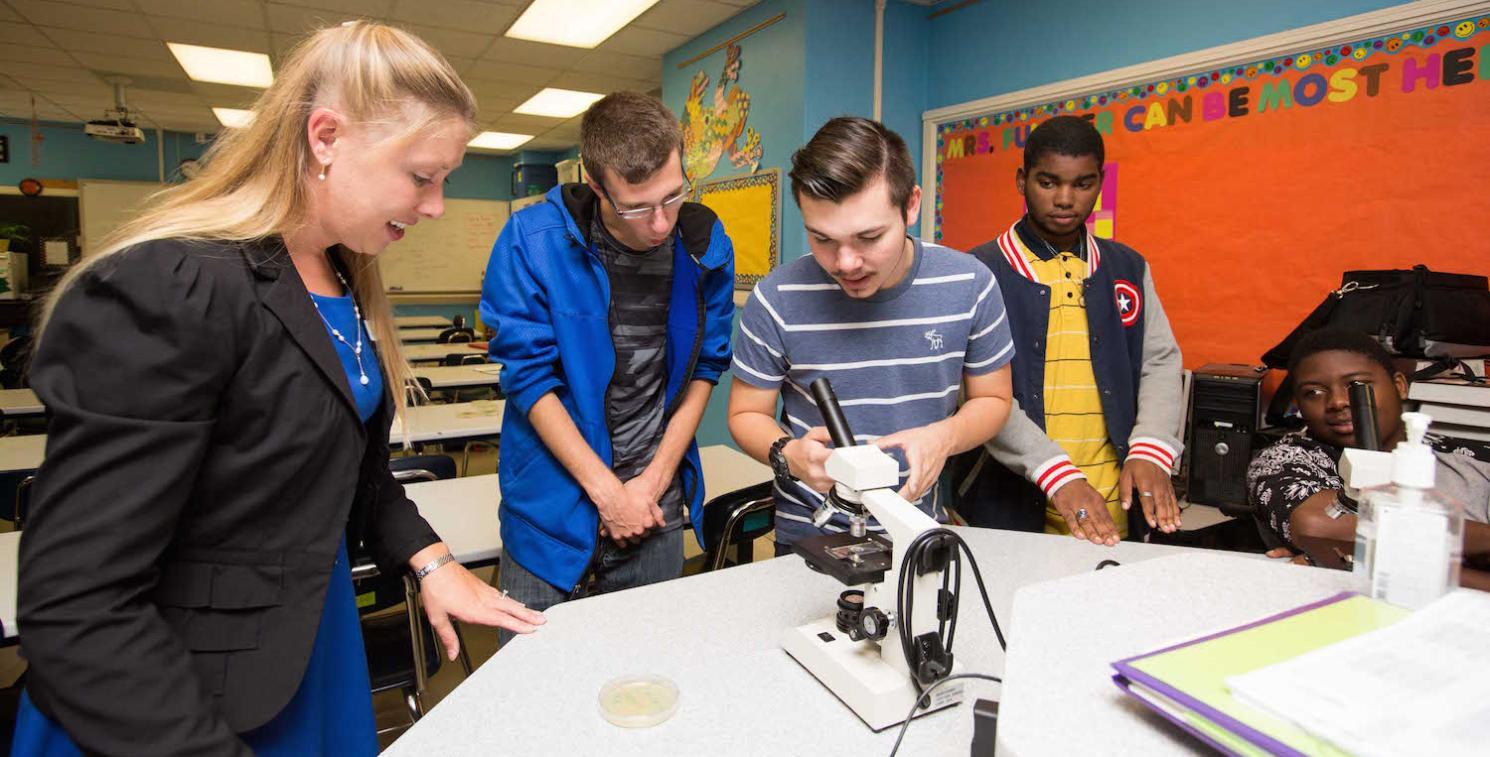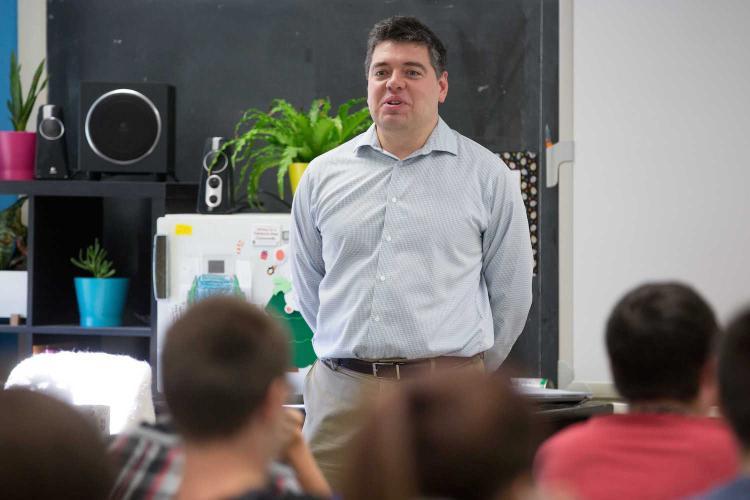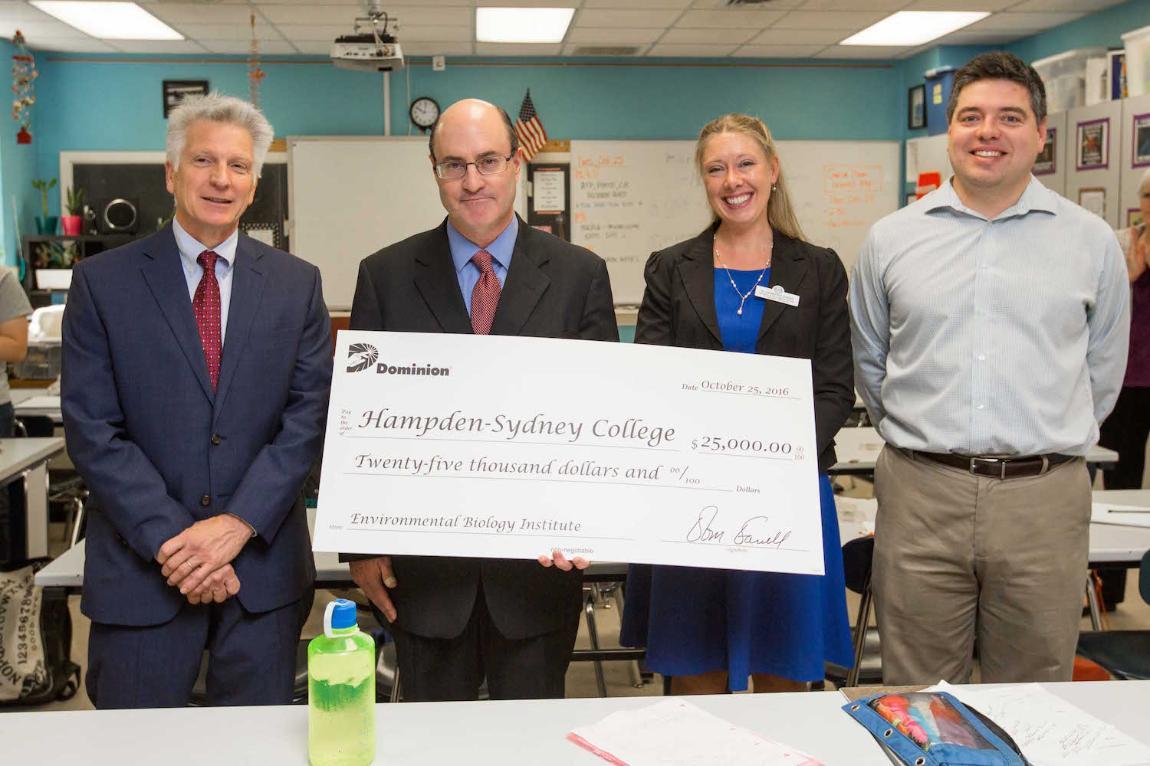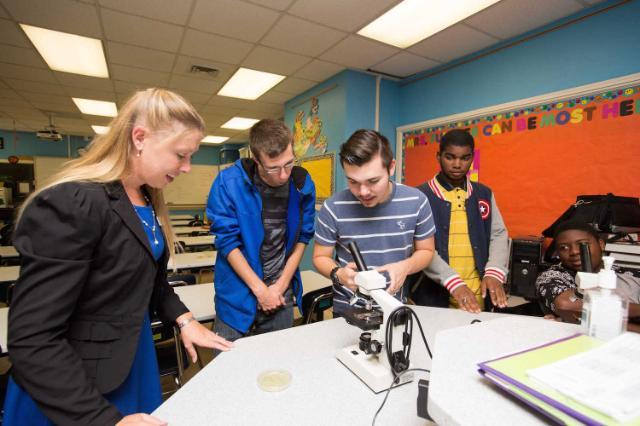

Every Tuesday morning at 9 a.m., unusually chipper students at Prince Edward County High School gather in a science classroom—but it’s not their usual teacher at the front of the room. Instead, they are greeted by two college professors.
The reason they are chipper? They, unlike many high-schoolers around the country, will spend the morning decoding and analyzing DNA sequences using machines transported directly from university laboratories.
The DNA they are analyzing comes from more everyday sources—instrument mouthpieces, metal bleachers, bathroom sinks. But the work is anything but commonplace.
There’s a powerful moment of discovery for each of these 20 students when they use these sophisticated techniques to explore their immediate surroundings.
Dr. Amorette Barber, assistant professor of biology at Longwood
“They’re looking at the environment they live in from a molecular biology perspective,” said Dr. Amorette Barber, assistant professor of biology at Longwood, who is one of the professors leading the classroom experiments. “There’s a powerful moment of discovery for each of these 20 students when they use these sophisticated techniques to explore their immediate surroundings. There will certainly be different microbes on each of those two mouthpieces, and when the students start to understand why that is, a whole new world opens up.”

The class is one piece of a partnership between Longwood and Hampden-Sydney biology departments, led by Barber and H-SC’s Dr. Michael Wolyniak, to apply molecular biology techniques to questions of environmental science in the regional biome. The work in the high-school classroom will be finished in seven weeks, but the work at Longwood and Hampden-Sydney is just getting started.
On Tuesday, Oct. 25, Dominion Virginia Power Senior Vice President for Regulatory Affairs Tom Wohlfarth joined Barber and Wolyniak at Prince Edward County High School to present a grant that will provide the foundation for years of collaborative work between Longwood and Hampden-Sydney.

The $25,000 grant, awarded to Hampden-Sydney College to launch the joint venture, called the Prince Edward County Environmental Molecular Biology Institute, will purchase incubators, centrifuges and other equipment that will be housed at Longwood’s Environmental Education Center at Lancer Park. In 2015, Longwood’s Environmental Observatory was bolstered by a similar Dominion grant. This year, the funds will expand the data available on the LEO server, which is used in various ongoing environmental research projects.
The partnership grew from a relationship between Barber and Wolyniak, whose work in molecular biology was operating in parallel just five miles apart.
“We have talked for a few years about combining resources to do some real community-based work,” said Barber. “When the Longwood Environmental Observatory got off the ground, we had the framework to apply a molecular biology lens to the environmental data that was being collected. And with the space available in the environmental education facility at Lancer Park, everything fell into place.”
The work starts as soon as students enter their first years in college—freshmen take on independent research projects looking at a specific microbiome in Farmville or Prince Edward County. One of those projects, looking at the microbes present on native hops plants vs. invasive hops plants that are resistant to many types of fungus, is an outgrowth of research Wolyniak has been involved in for several years.
“Genetics is a critical subject for every student studying the sciences or pursuing a career in the medical field,” said Wolyniak. “One of the ways to teach that is to bring genetics to bear on subjects that are familiar or interesting, and what this partnership does is allow us to take better advantage of the resources that are already in place and collaboratively grow this institute into a place where we can unlock a lot of information about our home.”
Back in the Prince Edward County High School classroom, Longwood senior chemistry major Amber Towles, who is concentrating on science education in hopes of becoming a teacher, has found an unexpected benefit to the outreach: practical experience.
“We are only in the high school lab for two hours a week,” she said, “but Dr. Barber and Dr. Wolyniak can’t be there for one of the hours because they each have to teach another class, so I get to lead the lab experiments with a few Hampden-Sydney students. Not only has that experience made me certain that I want to teach science when I graduate, but it’s been personally rewarding to be able to explain a pretty complex concept to students and watch their eyes light up with understanding.”
Data from the Prince Edward County Environmental Molecular Biology Institute will be made available on an open server that also houses Longwood Environmental Observatory data.

